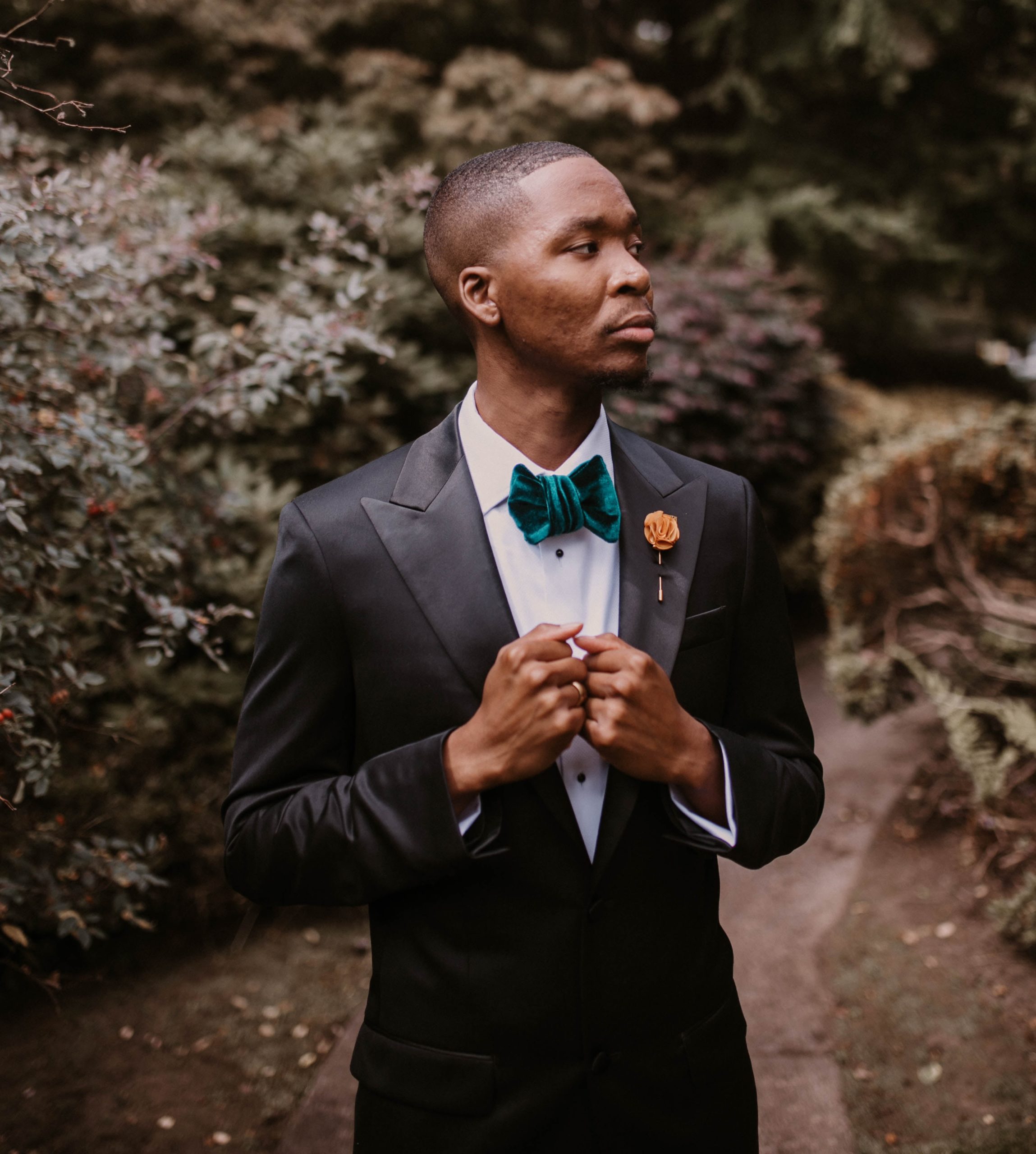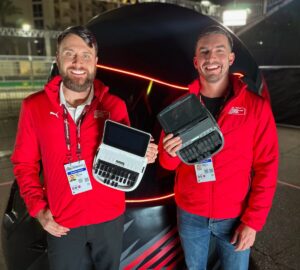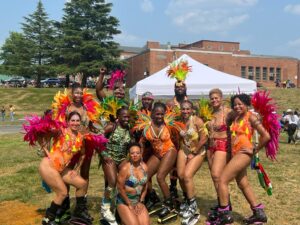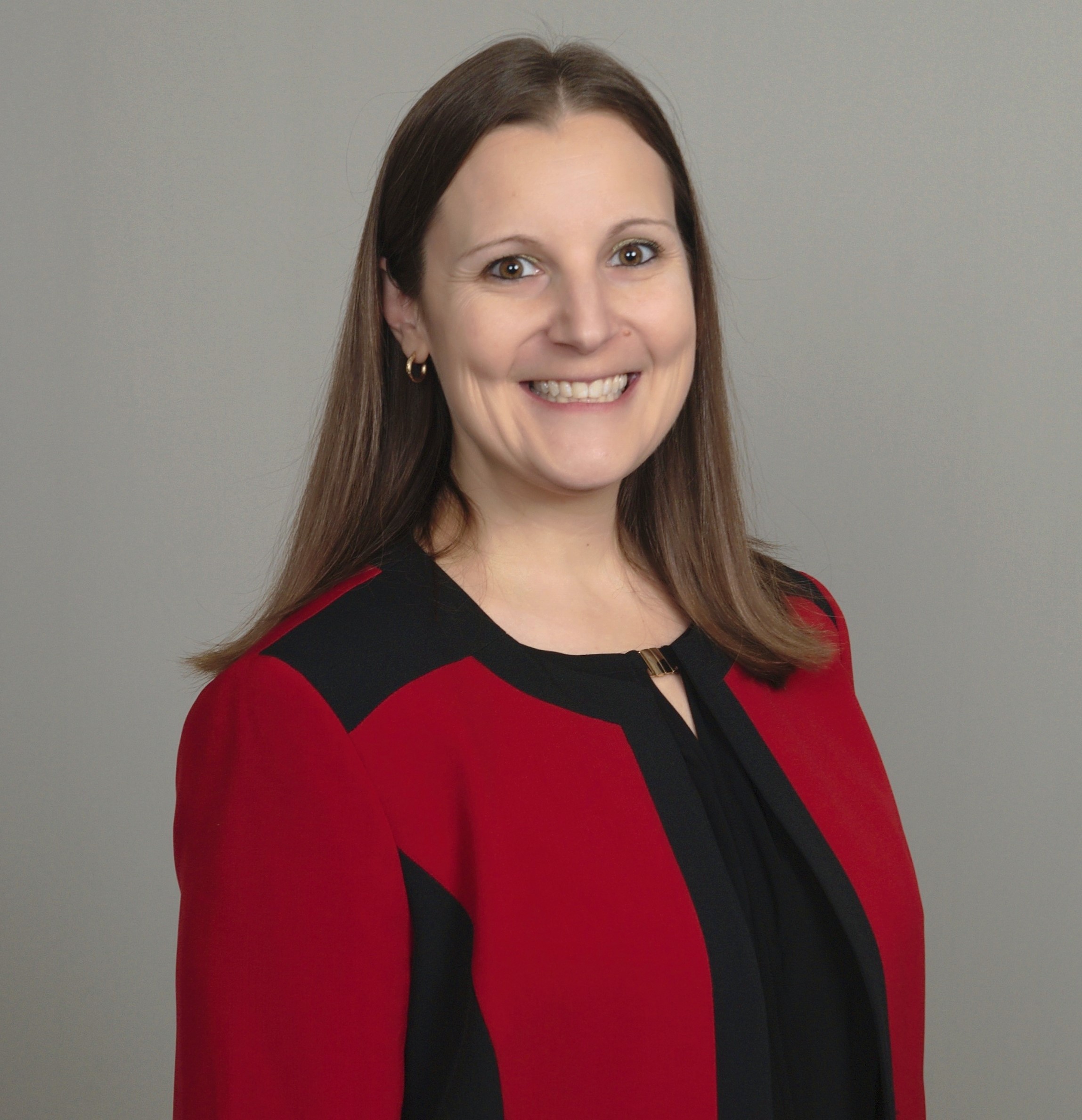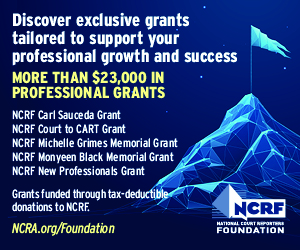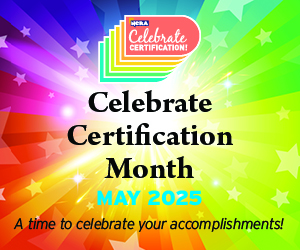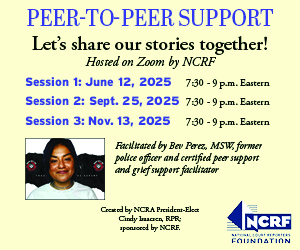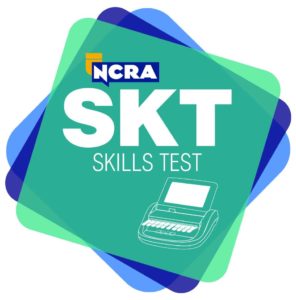By Kendra Steppler
Tevin Green lives in Vancouver, Wash., where he works as a freelance reporter. He graduated from Sumner College in Portland, Ore., and has been an NCRA member since 2015.
KS | Why did you choose to become a court reporter?
TG | I chose to be a court reporter because I love to write, and potentially more that I simply love words. I went to community college before court reporting school because I knew I wanted to write but had no idea what, how, or even why. I also love to be in people’s business without having to be in their business. There’s so much to learn in this field!
KS | What do you know now that you wish you’d known when you first started out?
TG | Oh, my goodness. I wish I’d fully comprehended how hard this job is and can be. We do not benefit when we don’t give a sizeable amount of time to our work. This is not a career or a job that you can shut the lights off at the end of a long day and pretend the job doesn’t exist. The work is full of nuances that can crush you if you aren’t paying attention: Losing speed, not briefing enough, not writing numbers effectively, time management, punctuation. We must be constantly improving.
KS | What’s your “can’t live without” item in your steno bag?
TG | Goodness. Probably a seat cushion or a lumbar support pillow. I’ve learned to deal with a lot, but having your bottom seeping through a beat-up wicker chair or reshaped by a hardwood chair is something I refuse to tolerate.
KS | What do you like to do when you’re not reporting?
TG | I love to read manga, novels, comics, play video games, and go roller skating with my wife, especially. Reading fictional stories can be a great departure from the onslaught of real personal tragedy that you can often hear in our line of work. I do believe it is humbling and reminds us of our own blessings, but sometimes you need to travel to a fictional land where there’s comical pirates or vampires who work at the supermarket.
KS | What’s the coolest experience you have had working in the profession?
TG | My coolest experience working in this profession was probably just feeling, in my early 20s, like this young, professional bachelor parading up and down downtown feeling very important. I would walk into a bar after a deposition and talk to some man or woman who just flew in for work and was grabbing a drink. We would chat over drinks and never see each other again. Feeling valued in your work is important, which in turn can give you a sense of pride. And I’ve always appreciated that.
KS | What is your long-term goal?
TG | My next goal is definitely to get my RPR in its fullness. My long-term goal is to get the necessary certification and acquire enough speed and accuracy to be able to caption for students who are hard of hearing. I feel like that’s another application of this skill that I would love to take part in.
KS | What was your theory?
TG | I’m fairly certain I started with StenEd, but now my theory has Kislingbury written all over it.
KS | What are some of your favorite briefs?
TG | I can’t say that I really have any favorite briefs. They change depending on the job. I recently had a deposition where Planned Parenthood was stated often, and I wrote PLOOD what felt like a billion times.
KS | Do you currently hold any certifications or aspire to hold them?
TG | I used my scores on the legs of the RPR to get my Oregon Shorthand Reporter license. I would like to acquire the RPR in its fullness early next year.
Kendra Steppler, RPR, is an official in Eugene, Ore.
